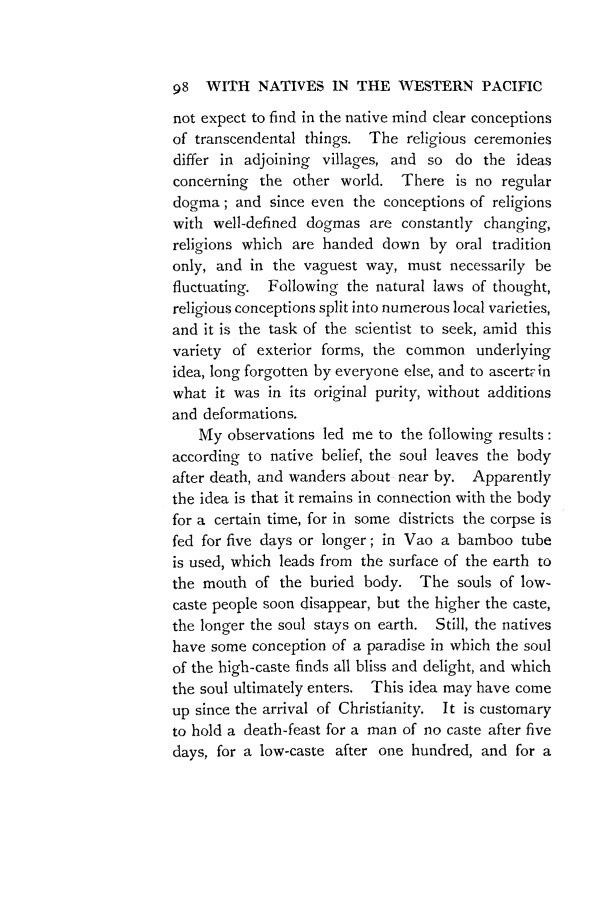|
|  [Note: this transcription was produced by an automatic OCR engine]
98 WITH NATIVES IN THE WESTERN PACIFIC
not expect to find in the native mind clear conceptions
of transcendental things. The religious ceremonies
differ in adjoining villages, and so do the ideas
concerning the other world. There is no regular
dogma; and since even the conceptions of religions
with well-defined dogmas are constantly changing,
religions which are handed down by oral tradition
only, and in the vaguest way, must necessarily be
fluctuating. Following the natural laws of thought,
religious conceptions split into numerous local varieties,
and it is the task of the scientist to seek, amid this
variety of exterior forms, the common underlying
idea, long forgotten by everyone else, and to ascertain
what it was in its original purity, without additions
and deformations.
My observations led me to the following results:
according to native belief, the soul leaves the body
after death, and wanders about near by. Apparently
the idea is that it remains in connection with the body
for a certain time, for in some districts the corpse is
fed for five days or longer; in Vao a bamboo tube
is used, which leads from the surface of the earth to
the mouth of the buried body. The souls of low
caste people soon disappear, but the higher the caste,
the longer the soul stays on earth. Still, the natives
have some conception of a paradise in which the soul
of the high—caste finds all bliss and delight, and which
the soul ultimately enters. This idea may have come
up since the arrival of Christianity. It is customary
to hold a death-feast for a man of no caste after five
days, for a low—caste after one hundred, and for a
|